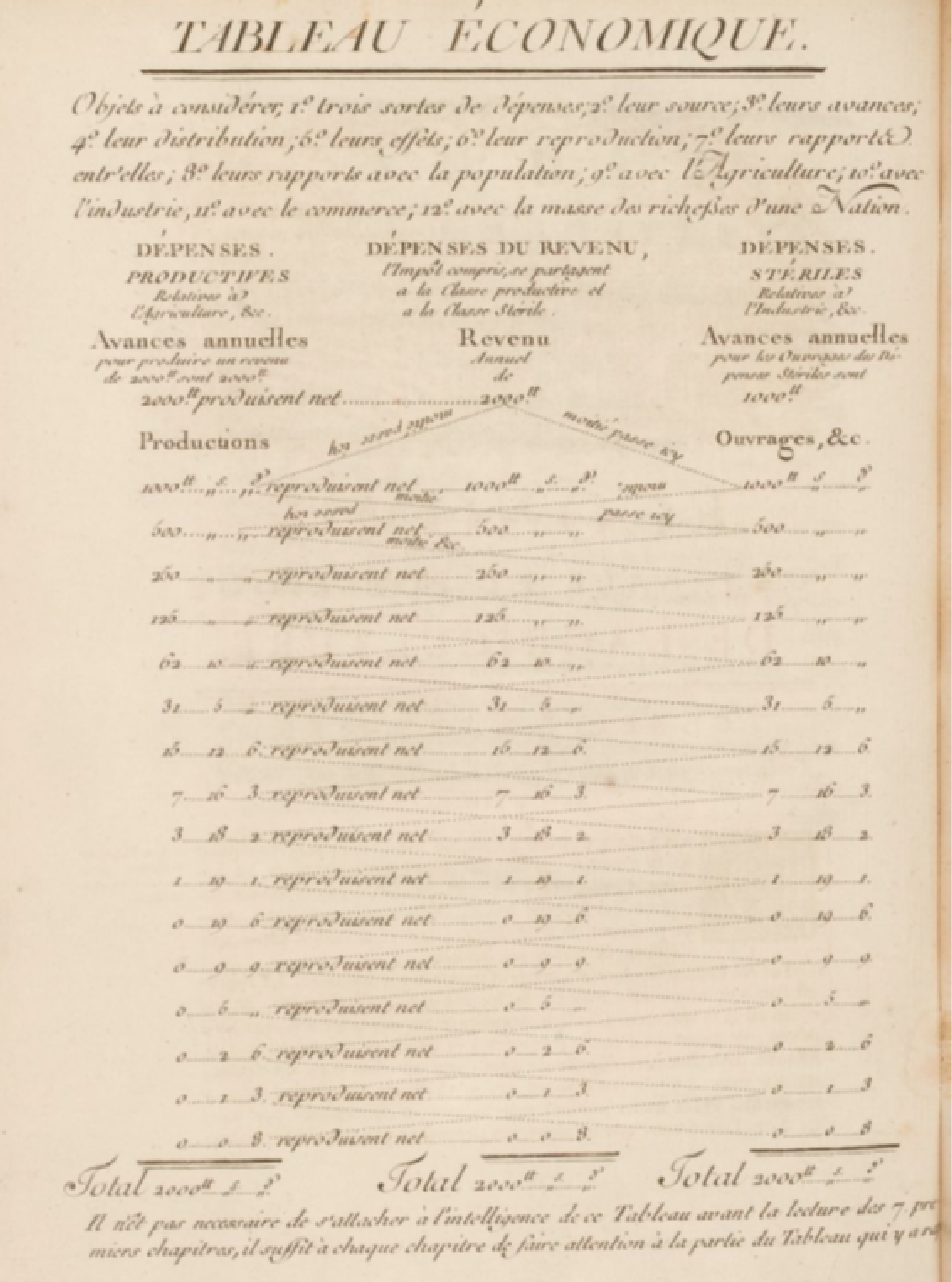Every theory, Adam Smith teaches, is a way of imagining things. If there are systems which are preferable to others, it is in so far as they explain, with a refinement and elegance of means which the others lack, varied and complex phenomena, reducing them to a unified set of principles, and giving them the appearance of a regularity and constancy without which they would elude our understanding. This observation, which was made regarding astronomy, also applies to the then emerging science of economics.
|
Quadro Econômico - Filosofia Rural (1763) |
As Hume points out, although wealth has always been an object of human concern, it was only in Modernity, with the arrival of Europeans on the American continent, that it became "a matter of state", due to its unprecedented multiplication. All of this suggests, at first sight, a chaotic and unruly phenomenon, governed by the force of human passions. But the moral philosopher, guided by the experimental method, knows that regularity is everywhere, even in those places where there seems to be no trace of it. From Hume's Essays to the Wealth of Nations, from Quesnay's Tableau to John Stuart Mill's Principles, from utilitarianism to marginalism, from the critique of political economy to macroeconomics, from econometrics to game theory, economics has been structuring and affirming itself as a science, in the successive endeavor to imagine regular systems of phenomena. The fact that it is also a pragmatics, or, as Hume says, that it is linked to the administration of the State, means that this effort to study human actions based on certain assumptions produces concrete effects, shaping the very actions it is meant to describe. This is an intriguing short circuit, which produces a wide array of results, political, social, and theoretical, and which places economics, to this day, firmly in the domain of the nineteenth-century theory of the imagination. Hence the idea of investigating the roots of this rich intellectual tradition, within a group of researchers guided by a double perspective: the history of economic problems, and the genealogy of the models and concepts present in the different strands of the science. While privileging the classics, this investigation opens up to contemporary strains of economic thought.


